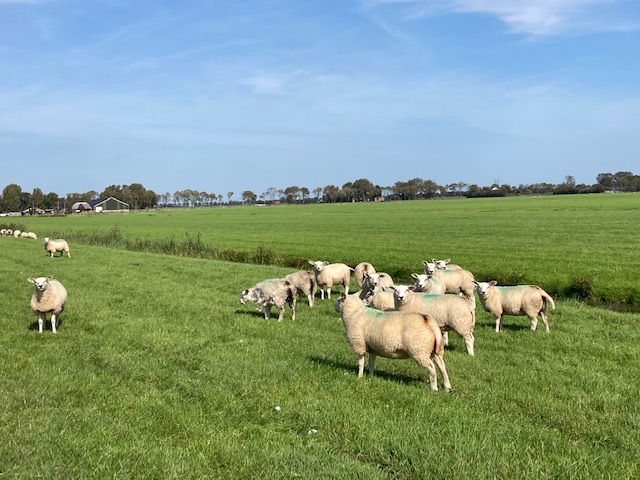Bluetongue cases rise dramatically on livestock farms

The number of livestock farms with suspected cases of bluetongue has doubled since the beginning of the month to 2,250 cases, according to the Dutch product safety authority NVWA.
The infection has been confirmed at almost 1,500 farms, and it’s thought that 770 more may be affected. Only Limburg and Zeeland provinces have yet to report an infection.
The country’s first outbreak of bluetongue in 14 years was reported in September.
Bluetongue mainly affects sheep, but cattle, goats, deer, alpacas and llamas can also get it. It’s not considered dangerous to humans or pets.
The Netherlands will now lose its EU disease-free status, meaning sheep will have to be vaccinated before they can be exported, caretaker agriculture minister Piet Adema said in a briefing to MPs. The country will have to be clear of bluetongue for three years before it can be declared disease free again.
Bluetongue is spread by midges, not by direct contact between animals, and farmers have been told to use insect repellents to stop the disease from spreading.
Contrary to bird flu, foot and mouth disease or mad cow disease, no animals will have to be culled as a result of bluetongue, which is characterised by high fever, a rounded back and lame walk, swelling of the lips and red to purply mucous membranes of the mouth and tongue.
Thank you for donating to DutchNews.nl.
We could not provide the Dutch News service, and keep it free of charge, without the generous support of our readers. Your donations allow us to report on issues you tell us matter, and provide you with a summary of the most important Dutch news each day.
Make a donation